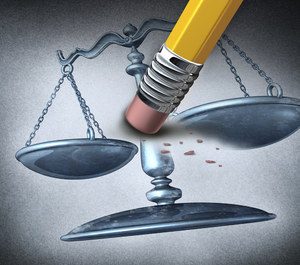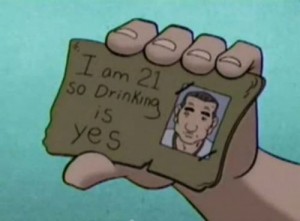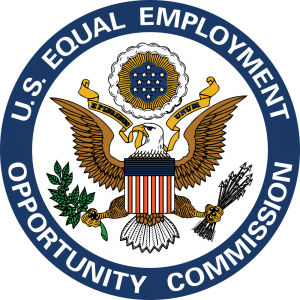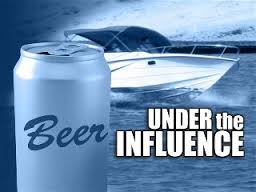Your Personal Injury Claim and Rule 414
Friday, August 16th, 2019 Ever since Rule 414 of the North Carolina Rules of Evidence, now known as the controversial “billed versus paid” law, was amended in October of 2011, personal injury victims who are covered by health insurance can now only prove damages for the amount that was actually paid, not what was billed. This may seem logical at first, but considering how insurance companies will negotiate lower payments to medical providers, this can cause insured victims to lose a major portion of what they could have claimed for damages.
Ever since Rule 414 of the North Carolina Rules of Evidence, now known as the controversial “billed versus paid” law, was amended in October of 2011, personal injury victims who are covered by health insurance can now only prove damages for the amount that was actually paid, not what was billed. This may seem logical at first, but considering how insurance companies will negotiate lower payments to medical providers, this can cause insured victims to lose a major portion of what they could have claimed for damages.
A relevant part of text from Rule 414 reads:
“Evidence offered to prove past medical expenses shall be limited to evidence of the amounts actually paid to satisfy the bills that have been satisfied, regardless of the source of payment, and evidence of the amounts actually necessary to satisfy the bills that have been incurred but not yet satisfied.”
In other words, if you have $15,000.00 in medical bills, but your insurance company only paid $7,000.00 to the provider at a discounted rate, you, as a personal injury victim, can only submit proof of the $7,000.00 that was actually paid.
Compare this situation to someone that does not have health insurance – they had the same $15,000.00 in medical bills, but since they do not have coverage, they can submit the full $15,000.00 for damages. This not only causes the person with health insurance to seem like they have lesser injuries, but it also helps the person with no insurance to recover more in damages. If you also consider the amount of money the insured victim has paid to date for their insurance premiums that will not be brought up as evidence, Rule 414 can absolutely cause issues when it comes time for court.
This law, among the others that affect personal injury victims, are muddying the waters and making it more difficult than ever for an injury victim to recover their full amount of damages owed. To some jurors and judges, a dollar amount that is submitted for evidence is how they decide the fairness of the damages, and that can be heavily diluted with the imposition of Rule 414. That is one of the many reasons that hiring an experienced personal injury attorney will be the best option.
If you or someone you know and care about has been injured, or killed, in a car accident or tractor trailer accident, or is the victim of a wrongful death in North Carolina, contact Collins Law Firm at 910-793-9000 for a confidential consultation.
By Karen M. Thompson, Paralegal

 Maritime law, better known as Admiralty law, is a body of law concerning behaviors and activities on the sea. Admiralty law governs the interactions of those who conduct business on the water. Primarily the focus is on international waters, but laws are applied to waters in and around each country.
Maritime law, better known as Admiralty law, is a body of law concerning behaviors and activities on the sea. Admiralty law governs the interactions of those who conduct business on the water. Primarily the focus is on international waters, but laws are applied to waters in and around each country. The North Carolina Department of Transportation (NCDOT) is one of the state’s largest agencies and its responsibilities include building, repairing, and operating all kinds of transportation within the state of North Carolina – i.e. highways, railroads, aviation, ferries, public transit, bike paths, and pedestrian walkways.
The North Carolina Department of Transportation (NCDOT) is one of the state’s largest agencies and its responsibilities include building, repairing, and operating all kinds of transportation within the state of North Carolina – i.e. highways, railroads, aviation, ferries, public transit, bike paths, and pedestrian walkways. It happens so easily—one makes a bad choice, gets misunderstood, or falsely accused, and in the result faces criminal charges. Regardless of the outcome in a criminal matter—even in case of a wrongful criminal charge—the fact that one was criminally charged will result in a criminal record. Unless dealt with appropriately, a criminal record may create a virtuous circle and negatively affect one’s chances in the job market, in college applications, on the housing market, etc. In an attempt to mitigate or avoid negative consequences of one’s criminal record, one should consult with an attorney about whether or not they are eligible for an expunction of their criminal record and if eligible, pursue the expunction.
It happens so easily—one makes a bad choice, gets misunderstood, or falsely accused, and in the result faces criminal charges. Regardless of the outcome in a criminal matter—even in case of a wrongful criminal charge—the fact that one was criminally charged will result in a criminal record. Unless dealt with appropriately, a criminal record may create a virtuous circle and negatively affect one’s chances in the job market, in college applications, on the housing market, etc. In an attempt to mitigate or avoid negative consequences of one’s criminal record, one should consult with an attorney about whether or not they are eligible for an expunction of their criminal record and if eligible, pursue the expunction. You may want to think twice before using a fake ID in New Hanover or Pender County from now on. Starting October 1, you will face more penalties in court if you are caught using a fake ID.
You may want to think twice before using a fake ID in New Hanover or Pender County from now on. Starting October 1, you will face more penalties in court if you are caught using a fake ID. The Good Samaritan Law (now effective in 20 states) went into effect in North Carolina on April 9, 2013. The basis for the law is overdose prevention and survival – get help, CALL 911! Individuals who experience or witness an overdose can now seek help for the victim without being prosecuted for small amounts of drugs/drug paraphernalia, or alcohol for persons under 21 years old under N.C. Gen. Stat. § 18B-302.2 Medical treatment; limited immunity. Additionally, as of August 1, 2015, a person who seeks medical assistance for someone experiencing a drug overdose cannot be considered in violation of probation, condition of parole, or post-release. Likewise, the victim is protected. In order for the immunity to apply, however, the 911 caller must provide his or her name, and act in good faith when seeking assistance, and reasonably believe that he or she is the first person to call for help.
The Good Samaritan Law (now effective in 20 states) went into effect in North Carolina on April 9, 2013. The basis for the law is overdose prevention and survival – get help, CALL 911! Individuals who experience or witness an overdose can now seek help for the victim without being prosecuted for small amounts of drugs/drug paraphernalia, or alcohol for persons under 21 years old under N.C. Gen. Stat. § 18B-302.2 Medical treatment; limited immunity. Additionally, as of August 1, 2015, a person who seeks medical assistance for someone experiencing a drug overdose cannot be considered in violation of probation, condition of parole, or post-release. Likewise, the victim is protected. In order for the immunity to apply, however, the 911 caller must provide his or her name, and act in good faith when seeking assistance, and reasonably believe that he or she is the first person to call for help. When one files a charge of discrimination with the Equal Employment Opportunity Commission (EEOC) it then becomes the agency’s responsibility to determine whether or not there is reason to believe that discrimination took place. Both the Charging Party (complainant) and the Respondent (defendant) are given an opportunity to provide information and explain what happened. The EEOC requests that the Respondent submit a statement of position, or position statement, with supporting evidence to prove why they do not deserve to be charged. Here are the guidelines, as recommended by the EEOC, on how to create an effective position statement:
When one files a charge of discrimination with the Equal Employment Opportunity Commission (EEOC) it then becomes the agency’s responsibility to determine whether or not there is reason to believe that discrimination took place. Both the Charging Party (complainant) and the Respondent (defendant) are given an opportunity to provide information and explain what happened. The EEOC requests that the Respondent submit a statement of position, or position statement, with supporting evidence to prove why they do not deserve to be charged. Here are the guidelines, as recommended by the EEOC, on how to create an effective position statement: So often we hear about how overcrowded and dangerous United States jails are, and naturally, with that, safekeeping becomes more and more difficult for jail staff as the problem increases. How does jail staff maintain a safe environment for the inmates? Or even more interesting, what is staff to do when an individual inmate becomes unmanageable by behavior, illness, or vulnerability? The answer is pretty straightforward but the process is complicated. In this type of situation, jail staff submits a transfer request in hopes to have the inmate transferred from jail to the state prison, through what is known as a safekeeping order. Pursuant to G.S. 162-39, “the resident judge of the superior court or any judge holding superior court in the district or any district court judge may order the prisoner transferred to a fit and secure jail in some other county where the prisoner shall be held for such length of time as the judge may direct,” under the following circumstances (where the prisoner):
So often we hear about how overcrowded and dangerous United States jails are, and naturally, with that, safekeeping becomes more and more difficult for jail staff as the problem increases. How does jail staff maintain a safe environment for the inmates? Or even more interesting, what is staff to do when an individual inmate becomes unmanageable by behavior, illness, or vulnerability? The answer is pretty straightforward but the process is complicated. In this type of situation, jail staff submits a transfer request in hopes to have the inmate transferred from jail to the state prison, through what is known as a safekeeping order. Pursuant to G.S. 162-39, “the resident judge of the superior court or any judge holding superior court in the district or any district court judge may order the prisoner transferred to a fit and secure jail in some other county where the prisoner shall be held for such length of time as the judge may direct,” under the following circumstances (where the prisoner): The Wrightsville Beach 32nd annual North Carolina Holiday Flotilla is upon us! Many Wilmingtonians look forward to this water-based event every Thanksgiving weekend, as family and friends come together to eat, drink, and celebrate the holiday together. Whether you have a boat entered in the contest or will be watching from land, it may be beneficial for you to be up-to-date on North Carolina’s laws against Boating While Impaired, commonly referred to as “BUI” or “BWI”.
The Wrightsville Beach 32nd annual North Carolina Holiday Flotilla is upon us! Many Wilmingtonians look forward to this water-based event every Thanksgiving weekend, as family and friends come together to eat, drink, and celebrate the holiday together. Whether you have a boat entered in the contest or will be watching from land, it may be beneficial for you to be up-to-date on North Carolina’s laws against Boating While Impaired, commonly referred to as “BUI” or “BWI”. Kelly Gissendaner was executed on Wednesday at 7pm, with respect to her sentence of the death penalty for engineering the murder of her husband in 1997, despite both her children and even Pope Carlo Francis’ wishes. After visiting the United States, the pope sincerely requested in writing that the state of Georgia not follow through with the execution of Ms. Gissendander as stated below:
Kelly Gissendaner was executed on Wednesday at 7pm, with respect to her sentence of the death penalty for engineering the murder of her husband in 1997, despite both her children and even Pope Carlo Francis’ wishes. After visiting the United States, the pope sincerely requested in writing that the state of Georgia not follow through with the execution of Ms. Gissendander as stated below: